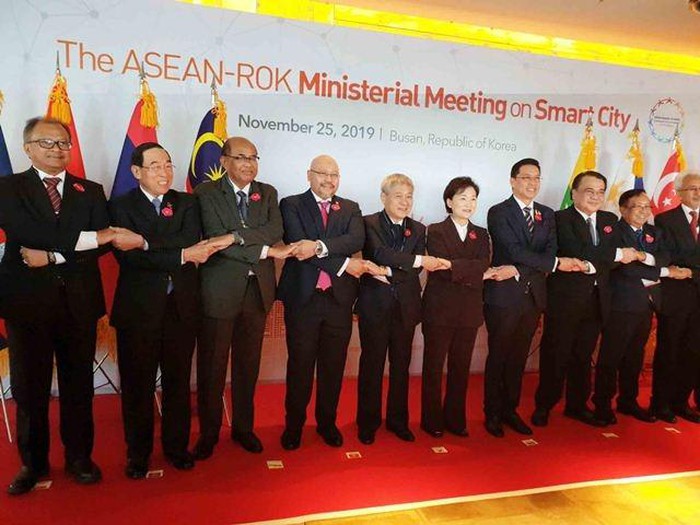VN attends ASEAN-RoK ministerial meeting on smart cities
VGP – Deputy Minister of Construction Bui Pham Khanh headed a Vietnamese delegation to attend a ministerial meeting on smart cities on November 25, within the framework of the 30th ASEAN-RoK Commemorative Summit in the RoK city of Busan.
 |
|
Heads of participating delegations pose for a photo together |
Speaking at the event, the Vietnamese official said smart city development is a strategic core content of the Fourth Industrial Revolution in the countries, adding that developing smart cities will work to enhance the efficiency of urban management, improve the quality of life for people in urban areas, and strengthen competitiveness, thus contributing significantly to the sustainable development of each country.
Viet Nam has issued some major guidelines and policies to proactively develop smart cities, towards the goal of having at least three smart cities in the northern, southern and central key economic regions (Hanoi, Ho Chi Minh City and Da Nang) by 2025, and establishing some smart city chains in the three key economic regions by 2030, step by step connecting to the smart urban network in the region and the world, he noted.
 |
|
Minister of Land, Infrastructure and Transport of the RoK Kim Hyun-mee delivers his opening remarks at the meeting |
Lauding the RoK’s efforts in supporting the promotion of the ASEAN Smart Cities Network (ASCN) initiative to enhance the sharing of experience on innovation and creativity, digital economic development and green technology, Khanh asked the RoK Ministry of Land, Infrastructure and Transport (MOLIT), the RoK partners and the ASEAN ministers to continue working closely with the Vietnamese Ministry of Construction in sharing experiences on institutional and policy building and smart city development, and coordinate with the Vietnamese side to organize the annual meeting of the ASEAN Smart Cities Network in Viet Nam in 2020.
On the sidelines of the meeting, the Vietnamese deputy minister had a working session with MOLIT Deputy Minister Park Sun-ho on a number of cooperation contents between the Vietnamese Ministry of Construction and the MOLIT in the near future.
By Vien Nhu
